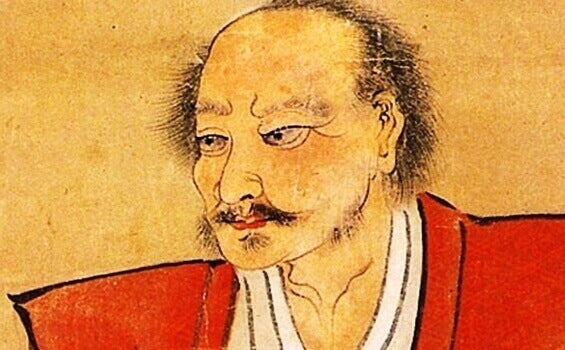Miyamoto Musashi was a famous samurai warrior at the time of feudalism in Japan. I was the author of the famous book “The Book of Five Rings”. In addition, he became famous for writing a list of rules of living for two weeks. before his death.
As a good oriental warrior, for Miyamoto, combat was much more than a fight. Have samurai placed an enormous value on personal evolution? It was precisely the way for them to become good fighters. Miyamoto’s rules of life have survived through time, as have the In them is the wisdom of those who have lived bravely and for noble causes. We have systematized these precepts into ten guidelines shared below:
- “If you want happiness for an hour.
- Take a nap.
- If you want a treat for a day.
- Go fishing.
- If you want happiness for a year.
- Inherit a fortune.
- If you want happiness for life.
- Help someone?.
- ?”Proverb?.
The first rule of life is to accept it as it is. Acceptance does not mean resignation, but humility. Life is what it is and an attitude depends on each of us: learning from circumstances that we do not choose, but with which we must live.
The consequence of not accepting reality is permanent suffering that results in an inner battle that is always lost. On the contrary, acceptance leads to learning from each situation.
The one who stops thinking a lot about himself ends up getting confused. Build a wall in front of the world and feed your insecurities. More than thinking about yourself, it’s just allowing you to be.
True happiness lies in being able to serve others, there is nothing to compare to the satisfaction of doing good, the generous are also powerful. This is finally what allows you to enjoy.
Desire, understood as the desire for what is not available, only leads to eternal dissatisfaction, having it is like a bottomless barrel: the more you have, the more you want, and the harder it becomes to satisfy.
Miyamoto, like many Orientals, struggled to eradicate desire. Whoever stinks, he’s very frustrated. The real power lies in the ability to give up. Those who need little, little is happy.
Repentance causes a lot of suffering. The worst part is that it’s an unnecessary feeling. Thus, Miyamoto understands his rules of life. He insists that we should not see error as a condemnation, but as a characteristic associated with our nature.
Every action we do teaches us something. It also changes us in some way: if we don’t act well, we get a great learning experience. Therefore, nothing lived is despicable, the important thing is to learn from the situation and enrich our luggage.
The denunciation only contributes to the invasion of the person by bad energies, besides harassing those around him, it makes no sense, because instead of propeling the individual into action, he ends up paralyzing him.
According to Miyamoto’s rules of life, complaints and resentment poison those who feel them are useless. On the contrary, they begin to damage other feelings that, in turn, are positive.
Objects influence our emotions and the way we view life; if we stick too closely to them, they end up exercising control over ourselves and make our consciousness less free.
This applies particularly to things that we no longer need and that we still retain, these things make us more insecure and rigid. That’s why, in the rules of life, he insists on getting rid of the useless.
Basically we are talking about maintaining trust in our judgment, trusting in the common sense that each has, respecting their own beliefs and values. Otherwise, the person becomes very manipulable.
No one needs to know what is right or wrong, we all have the ability to decide for ourselves, blindly following others only leads us to betray ourselves at some point.
Honor is an almost forgotten word. It has to do with self-love, not allowing us to disagree with the values we stand for and believe in, values that would constitute a kind of compass that prides itself when respected in the face of temptations.
Honor is every person’s most valuable asset. An honorable person inspires respect and consideration. This attracts goodwill and consideration from others, including enemies. This is how honor gives value to life; very intimate and personal value.
Emotions, in general, are impulsive responses; if rationalized, they become feelings. These are deeper and more reflective; are associated with values, not needs.
Love is an extraordinary feeling. However, sometimes we call love a blind and ephemeral emotion, this happens when what inspires love is appetite for something or attachment, in those cases it does more harm than good.
It’s a fact: we’re mortal. Life is over and it is a natural reality, we must not fear death itself or the beings we love, so we overcome the fear of death by living life intensely.
The rules of Miyamoto’s life have survived time by the great wisdom they convey and also by all that they inspire, they cry out realism, humility and inner peace, they try to keep us focused on essence, not appearance and insignificantness.

